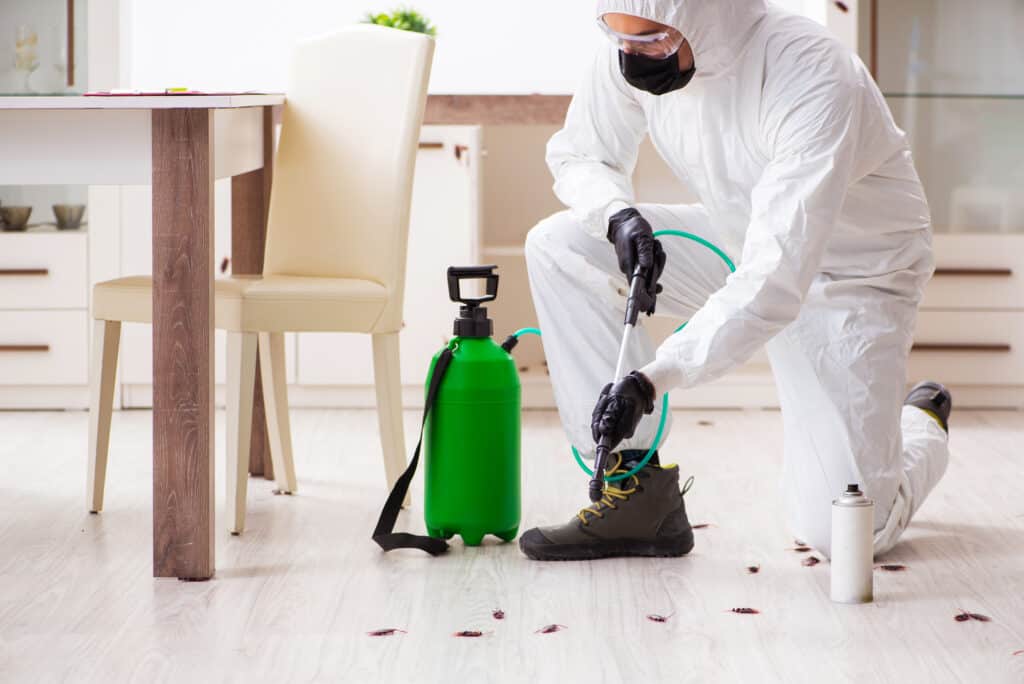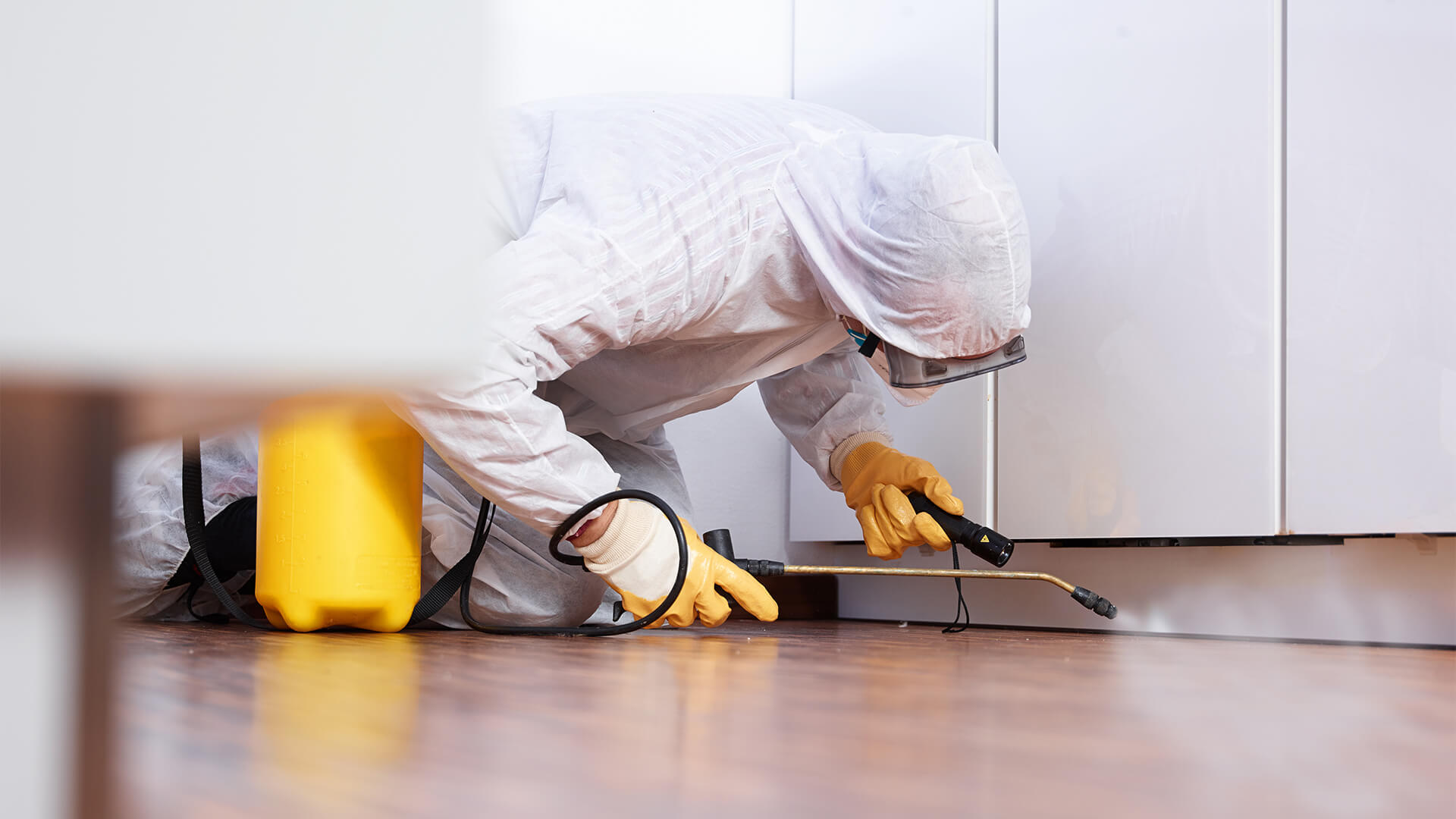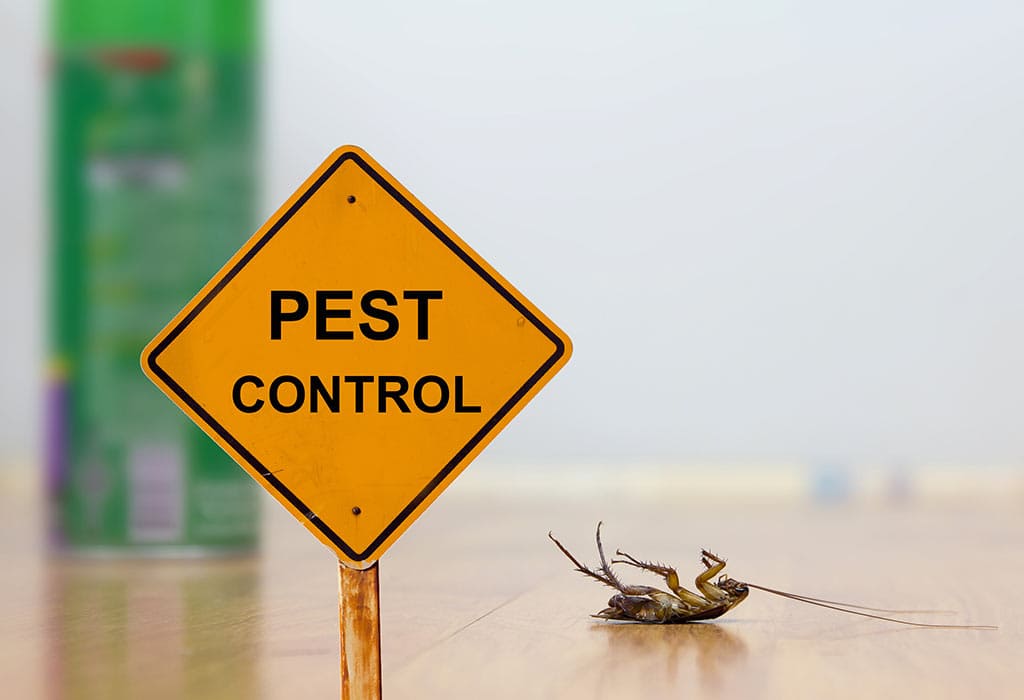Orem Pest Control Solutions: Customized Solutions for every single Invasion
Orem Pest Control Solutions: Customized Solutions for every single Invasion
Blog Article
Discovering the Different Sorts Of Insect Control Techniques and Their Applications
Pest control is an essential element of maintaining a safe and healthy atmosphere, whether it be in domestic, business, or agricultural setups. From chemical techniques that target specific bugs to biological methods that harness natural killers, the world of insect control is diverse and substantial.
Chemical Bug Control Strategies
Chemical bug control methods are widely made use of in farming and insect administration to effectively get rid of or manage pest infestations. These techniques include the use of chemical compounds, such as insecticides, herbicides, and chemicals, to get rid of or decrease parasite populaces that present a hazard to crops, livestock, or human health. Chemicals, for instance, target specific parasites like insects, weeds, or rodents, disrupting their life process or creating straight damage upon get in touch with. Herbicides are particularly made to control undesirable plants that completes with plants for sources and nutrients. Insecticides, on the various other hand, are utilized to deal with insect pests that can damage plants and transfer conditions.
While chemical bug control strategies can be highly efficient in taking care of pest populations, they additionally increase problems about prospective ecological and wellness risks. It is essential to comply with safety and security standards, use integrated pest monitoring approaches, and consider different approaches to decrease the unfavorable impacts of chemical insect control techniques.
Organic Pest Control Techniques
 Organic insect control approaches make use of living organisms to decrease and manage parasite populaces in a lasting and eco pleasant way. This approach entails presenting natural predators, bloodsuckers, or microorganisms to regulate parasites without the requirement for synthetic chemicals. One common approach is the launch of ladybugs to combat aphids in gardens, as ladybugs are natural killers of these harmful insects. Another example is the use of Bacillus thuringiensis (Bt), a microorganism that creates toxins dangerous to specific insect larvae, to control caterpillars and insects.
Organic insect control approaches make use of living organisms to decrease and manage parasite populaces in a lasting and eco pleasant way. This approach entails presenting natural predators, bloodsuckers, or microorganisms to regulate parasites without the requirement for synthetic chemicals. One common approach is the launch of ladybugs to combat aphids in gardens, as ladybugs are natural killers of these harmful insects. Another example is the use of Bacillus thuringiensis (Bt), a microorganism that creates toxins dangerous to specific insect larvae, to control caterpillars and insects. 
Biological pest control approaches use a number of advantages over chemical techniques. On the whole, organic bug control methods offer a all-natural and efficient alternative to typical chemical therapies, promoting a balanced community and much healthier environments.
Physical Bug Control Approaches
Making use of physical methods to control parasites involves using mechanical or non-chemical methods to alleviate and manage parasite invasions successfully. These methods rely upon physical obstacles, catches, and other strategies to discourage and get rid of parasites without the usage of unsafe chemicals. One typical physical insect control technique is the installment of displays, nets, or fences to block pests from going into certain areas. This technique is specifically reliable in shutting out insects and little pets from gardens or buildings.
One more physical strategy is making use of traps, such as snap catches for rats or scent traps for pests. These traps aim to record insects without positioning any risk to human beings or the setting. In addition, physical control approaches can include methods like handpicking insects off plants, using vacuum gadgets to remove bugs, or employing heat treatments to remove bed insects and various other bugs in infested locations.
Integrated Bug Monitoring Techniques
Applying an alternative method to pest monitoring, Integrated Parasite Administration (IPM) techniques intend to integrate various efficient techniques to avoid and manage pest invasions while minimizing ecological effect and making certain lasting pest control methods. IPM this content entails the combination of several control techniques such as biological control, social practices, mechanical control, and the cautious use pesticides.

Moreover, IPM highlights the importance of monitoring and examining pest populations to determine one of the most proper control strategies. By implementing IPM techniques, insect control efforts come to be extra targeted and efficient, decreasing the dangers connected with too much pesticide usage and promoting lasting insect administration options.
Natural and Organic Pest Control Options

One prominent natural bug control technique is neem oil, obtained from the seeds of the neem tree, which works as a repellent and disrupts the development and advancement of pests. Diatomaceous planet, a natural silica-based powder, is an additional efficient organic insect control alternative that functions by dehydrating pests upon call. By incorporating natural and natural bug control options into pest monitoring techniques, people can efficiently control pests while decreasing injury to the environment and promoting lasting techniques.
Verdict
In conclusion, various pest control strategies such as chemical, organic, physical, incorporated pest administration, and natural options are available for efficiently taking care of bug invasions. Each method has its own benefits and applications depending upon the kind of insect and the atmosphere. By comprehending the various sorts of parasite control strategies and their applications, people can make educated choices on the most ideal method to manage insects and secure their property.
Chemical insect control techniques are commonly used in agriculture and parasite management to properly remove or regulate pest infestations - Orem Pest Control. All-natural insect control methods involve making use of biological control agents, such as killers or bloodsuckers, to handle insect populaces. By incorporating natural and natural insect control choices into parasite management techniques, people can efficiently control bugs while decreasing damage to the atmosphere and promoting lasting methods
In final thought, different insect control go now techniques such as chemical, organic, physical, integrated pest monitoring, and natural alternatives are available for properly managing parasite infestations. By recognizing the various kinds of parasite control techniques and their applications, people can make informed decisions on the most appropriate technique to regulate parasites and secure their residential or commercial property.
Report this page